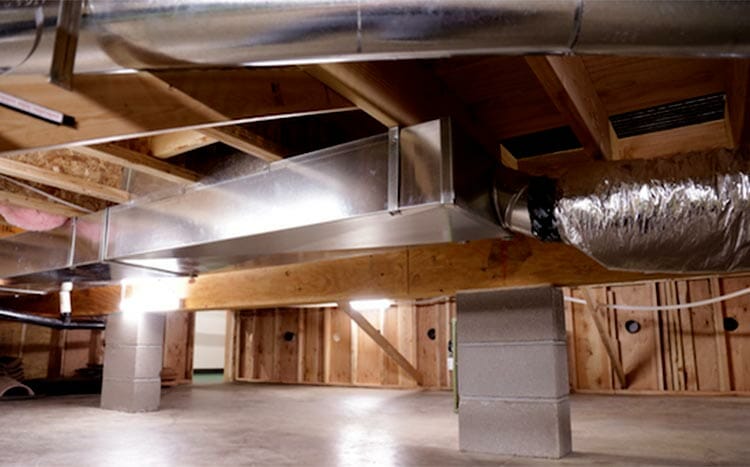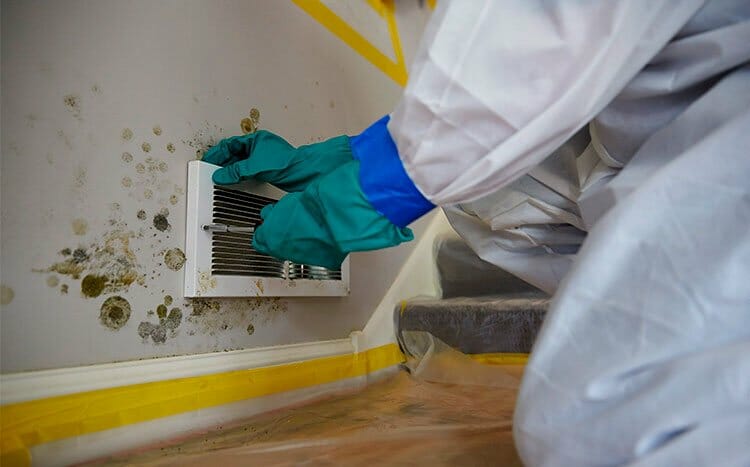The existence of mold can significantly affect the well-being of inhabitants as well as the integrity of a building’s structure. It is vital to reveal any issues related to mold to prospective buyers before finalizing the sale, underscoring the necessity of full transparency.
Whether or not one should buy a house with mold depends on a variety of factors that include the cost of the house inclusive of the mold removal, state of health of the prospective owner and the amount of time it will take to get rid of the mold.
It is therefore only suitable to buy a house with if you have the means to remove it before it causes serious health and structural concerns. A considerable discount on the house may also be a great reason for one to purchase the said premises.

How to decide it’s okay to buy a house with mold?
The Federal Housing Administration (FHA) appraisal is certainly one of the most important places to check when it comes to buying a house with mold. This is because it is able to tell you the value of a home relative to the type, location and extent of its mold growth.
Inspection – Getting a professional to carry out a mold inspection and give you their assessment on what it might cost to remediate and make the changes needed so moisture is no longer a problem in the future.
Budgetary considerations – The amount of money it will take to completely remove the mold relative to the steep discount given must also be looked at. Generally, one should never have to buy a house whose steep discount cannot cater for the mold removal.
Health – Health is also an important factor when buying a mold infested home. In other words, people with prevailing respiratory conditions such as allergies and asthma should not buy a mold infested home unless they have the time and money to completely eradicate the mold before moving in.
A purchasing decision can then be made depending on the cumulative sway of all of these factors.
How does mold affect home value?
The presence of mold in a home certainly guarantees a fall in the value of the same. Homeowners are thus advised to invest in mold specialist removal services or risk the downward spiraling of their home’s value.
Vigilance is especially important as a preventive measure against the excessive growth of mold. It is considered more important than removal since even a properly treated house can decrease in value as a result of previous mold problems.
Is mold a sign of a bigger problem?
The infestation of mold in any given premises can more often than not be traced to a moisture problem. This is because mold is generally known to grow under excessively moist conditions.
Excessively moist conditions can be traced to problems such as water leakages, previous flooding and past mold problems that were not effectively dealt with. Mold often becomes a thing of the past when these root issues are tackled.
Should I buy a house with mold in attic?
Mold in the attic should not come as a major surprise to a prospective buyer. It should however cause him to find out the extent of its growth and the resources it would take to effectively curtail or completely eliminate it
Attic mold is generally not considered a threat if it is on the sheathing. This can however change if there is some significant damage on the same. Treatment and sealing of the sheathing is a good option if it has not been damaged.
Remediation is however the way to go in cases where the attic mold is a result of underlying problems such as damaged sheathing, cracks in the foundation, and leakage in the roof. In such cases, one should only buy the said property if he or she can afford remediation.
Should I buy a house with mold in basement?
Buying a house with mold in the basement is dependent on primary factors that include health, financial constraints, extent of mold growth and the time one is willing to spend in mold remediation before moving in.
A mold infested basement is certainly not good for those with underlying respiratory illnesses and allergies. In such cases, one should only buy the said house if he or she does not plan to move in until the old problem is sorted out.
Should I buy a house with mold in crawl space?
The presence of mold in the crawl space can cause extreme damage in the foundation of the house in question. One should therefore only buy a house with mold in the crawl space after determining the extent of mold infestation and the cost it would take for remediation.
The first step normally involves hiring an expert to find out the source of the mold in your crawl space. Mild growth can always be dealt with through the installation of vapor barriers and dehumidifiers which keep the crawl space moisture free.
Vast and extreme mold growth can however require great resources to be invested in both the removal of the mold and the repairing of the damaged structures.

Should I buy a house with black mold?
Buying a house with black mold is generally acceptable as long as the necessary measures and precautions are taken. These measures include engaging mold experts to find out whether the mold problem is being caused by an underlying structural oversight.
Home Garden Guides is a great tool that quickly matches you with the best mold testing and remediation specialists in your locality. You can get three estimates from local mold testing and mold remediation professionals in a matter of two minutes. Kindly follow the steps below to enjoy this great service:
- Scroll to the top of the page and enter your zip code
- Answer questions about your drywall job
- Your mold testing and remediation details are forwarded to three local experts who will send you a price estimate for your job with some friendly advice.
The capacity to correct the said structural oversight as well as the damage it has already caused should therefore be considered before buying a house with black mold. These structural oversights usually include water leakages and compromised foundations.
Should mold be a deal breaker when buying a house?
Whether mold should be a deal breaker or not as far as buying a house is concerned is normally dependent on the extent of the mold problem, the amount of resources it would take to fix it and the potential health and structural dangers it poses.
Mold should therefore only be a deal breaker if the prospective buyer does not have the financial muscle and time resource to invest as far as both buying and fixing the house is concerned.
Do sellers have to fix mold?
House sellers do not have to fix a pre-existing mold problem as long as they can structure the cost of effectively dealing with it in the valuation of the said premise. This therefore means that a prevailing mold issue is almost certain to bring the price of a house down.
Apart from giving a steep discount, a seller must also offer full disclosure of the mold problem to the prospective buyer at hand. This should be done to make sure that the buyer knows exactly what he is getting into as far as dealing with mold is concerned.
It should also be done to prevent any legal ramifications which may occur as a result of not fully disclosing the prevailing mold issue.
FAQ's
What to do if you bought a house with mold?
Identification
Finding out the type and extent of the mold growth is certainly the first step to take if you discover mold moments after purchasing a house. It is usually advisable to leave this to the experts especially if you have underlying health issues.
Inspection
One should also engage a new home inspector to determine any oversights that may have been overlooked during the initial inspection. This will act as a basis to determine liability and lack of full disclosure on the seller’s part.
Informing the Seller
Contacting the seller is the next step in dealing with a newly discovered mold problem in a new house. This is because he or she may be willing to cater for the mold remediation costs. If not, a lawsuit can always be filed if one believes that there was lack of full disclosure on the seller’s part.
Remediation
Whether one agrees with the seller or not as far as dealing with the costs is concerned, it is usually advisable to deal with the mold problem as soon as possible through remediation.
How hard it is to get rid of mold in a house?
Small mold infestations can easily be dealt by scrubbing and rinsing it away using a baking soda, vinegar and water solution. Extreme mold growth may however require mold remediation specialists in order to ensure adequate removal of the same.
What are side effects of mold exposure?
Mold can cause a wide variety of health concerns even though it has not been proven to lead to death. The side effects of mild mold exposure are known to include symptoms such as a running nose, a dry cough, sore throats and skin rashes.
Severe exposure may however lead to wheezing and the worsening of both allergic reactions and underlying respiratory conditions such as asthma. Fungal infections and food poisoning are also known to occur as a result of mold exposure.
Can I walk away after home inspection?
Walking away after the home inspection is a rather common phenomenon. This is because the inspection normally reveals the undesirable qualities of a home, such as the presence of mold, which a prospective buyer may not be able to solve or live with.
How much does mold removal cost?
Mold removal is known to cost between $1500-$3500 on average even though some owners usually pay about $2500 for mold remediation to be conducted in their basement.








